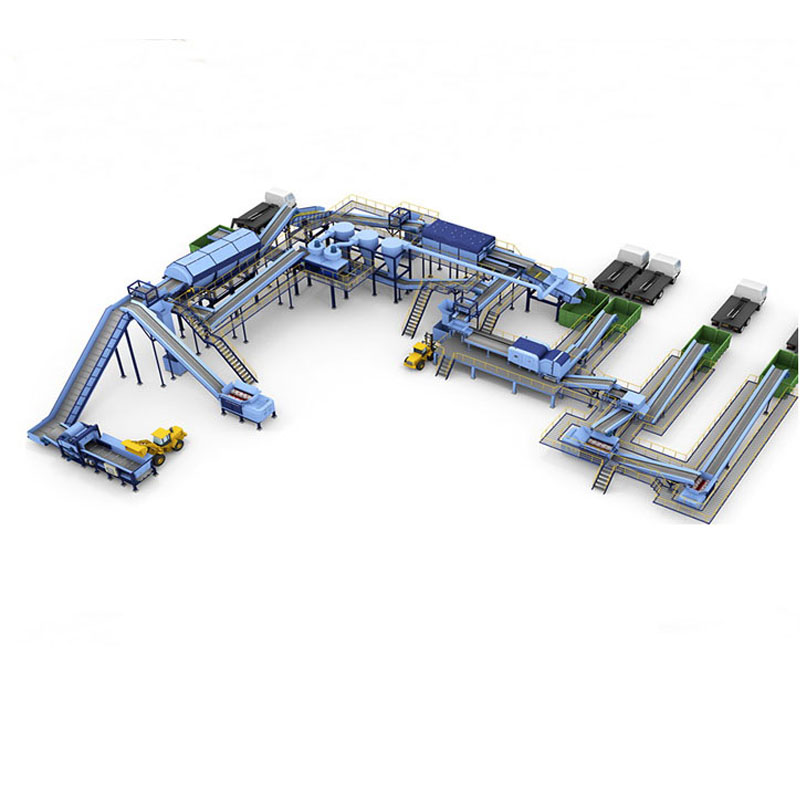

Dec . 10, 2024 19:01 Back to list
The Importance of Aluminum Can Recycling Plants
In today's world, where environmental concerns are paramount, aluminum can recycling plants play a crucial role in promoting sustainability and reducing waste. Aluminum, a widely used metal in beverage containers, is not only incredibly useful but also 100% recyclable without losing its properties. This article explores the importance of aluminum can recycling plants, their operational processes, and the environmental benefits they provide.
The Recycling Process
Aluminum can recycling begins with the collection of used cans from various sources, including households, businesses, and recycling centers. After collection, the cans are transported to recycling plants where they undergo a stringent cleaning and processing procedure. The first step is to remove any non-aluminum materials, such as plastic caps and labels. This is typically achieved through a combination of manual sorting and automated systems.
Once pure aluminum is isolated, the cans are compacted and baled for easier transport. The next stage involves shredding the aluminum, which increases its surface area and prepares it for melting. The shredded aluminum is then fed into a furnace where it is heated to approximately 1400 degrees Fahrenheit. During this phase, any remaining coatings or impurities are burned off, resulting in clean molten aluminum.
After melting, the aluminum can be cast into large ingots or sheets, which are then rolled out and shaped into new products. This process not only recycles aluminum but significantly reduces the need for raw material extraction and processing, making it an environmentally friendly option.
Environmental Benefits
One of the most significant benefits of aluminum can recycling plants is the conservation of natural resources. Mining bauxite, the primary ore of aluminum, is energy-intensive and has a substantial environmental impact. By recycling aluminum, we can save up to 95% of the energy required to produce new aluminum from raw materials. This energy saving translates to a significant reduction in greenhouse gas emissions, contributing to the fight against climate change.
Moreover, recycling aluminum helps to reduce landfill waste. Aluminum cans are one of the most common types of waste found in landfills, and they can take up to 200 years to decompose. By diverting these cans from landfills through recycling, we not only minimize waste but also extend the lifespan of our landfills.

Economic Impact
Aluminum can recycling plants also contribute to the economy. They create jobs spanning various sectors, from collection and transportation to processing and distribution. The recycling industry has proven to be a robust job market, providing stable employment opportunities in both urban and rural areas.
Furthermore, recycling aluminum is economically beneficial for businesses. The recycled aluminum can be sold at a lower cost than newly mined aluminum. This allows companies that use aluminum to save money, thus benefiting consumers as well. Many beverage companies and manufacturers actively support recycling initiatives, understanding that a well-established recycling program can enhance their corporate social responsibility (CSR) profile.
Community Engagement and Awareness
To maximize the effectiveness of aluminum can recycling plants, community engagement and education are crucial. Many plants conduct outreach programs to inform the public about the importance of recycling and how it impacts the environment. Schools, local organizations, and municipalities can collaborate to set up recycling initiatives, making it easier for people to recycle their aluminum cans.
Additionally, technological advancements have made recycling more efficient. Innovations in sorting technology, for example, have improved the purity of recycled aluminum, making it more valuable. Public awareness campaigns can also help to change consumer behavior, encouraging individuals to prioritize recycling in their daily lives.
Conclusion
Aluminum can recycling plants play a vital role in promoting environmental sustainability, conserving natural resources, and supporting the economy. By reducing the need for new aluminum production, they help lower energy consumption and greenhouse gas emissions while also providing job opportunities and economic benefits. Furthermore, community involvement and education are essential to enhance recycling efforts and maximize their impact. As we continue to face environmental challenges, supporting and expanding aluminum can recycling initiatives can lead us toward a more sustainable future. Every can recycled is a step toward protecting our planet for future generations.
Latest news
Troubleshooting Common Eddy Separator Problems
NewsJul.04,2025
The Role of Metal Recycling Plants in Circular Economy
NewsJul.04,2025
The Impact of Recycling Line Pickers on Waste Management Costs
NewsJul.04,2025
Safety Features Every Metal Shredder Should Have
NewsJul.04,2025
How Industrial Shredders Improve Waste Management Systems
NewsJul.04,2025
How Cable Granulators Contribute to Sustainable Recycling
NewsJul.04,2025